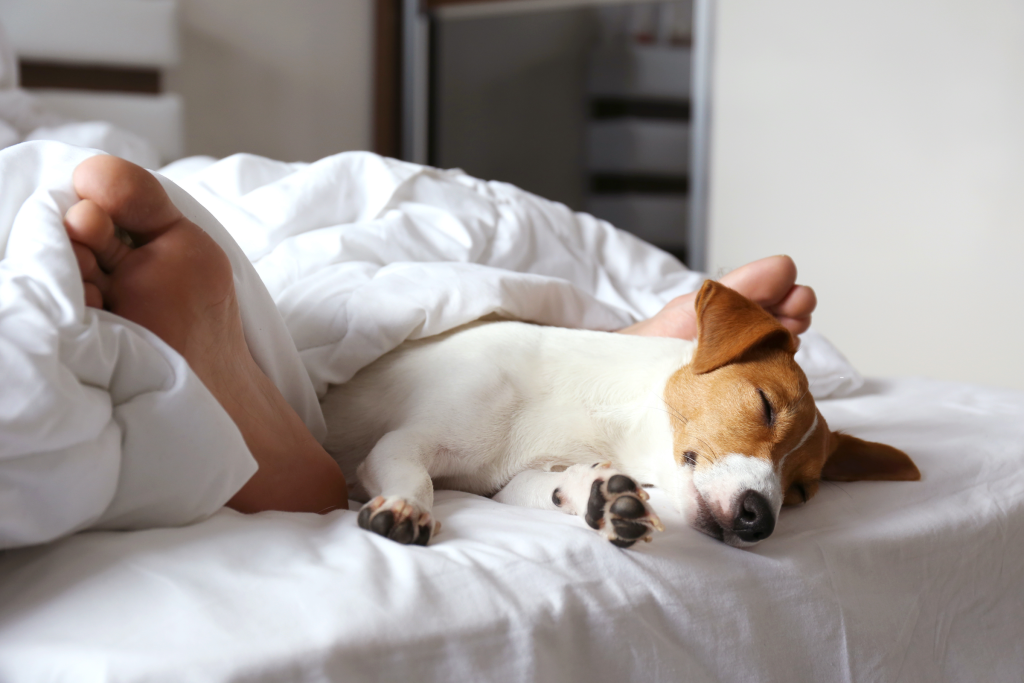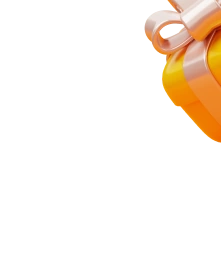Why Do Dogs Get Hiccups When Sleeping?
Dogs are known for their adorable and sometimes quirky behaviors, and one peculiar occurrence that many dog owners have witnessed is their furry companions getting hiccups while sleeping. It can be both amusing and concerning to see your dog experiencing these involuntary spasms, especially if you are unsure of their cause and potential implications. In this article, we will explore the fascinating phenomenon of dogs getting hiccups during their slumber and delve into the possible reasons behind it.
Hiccups, scientifically known as synchronous diaphragmatic flutter, are repetitive contractions of the diaphragm muscle. They typically result in sudden, involuntary sounds or movements caused by the rapid closure of the vocal cords. While hiccups are commonly associated with humans, it is not uncommon for dogs to experience them as well, particularly during sleep.
One possible explanation for why dogs get hiccups when sleeping is the similarity in their physiological responses to humans. Just like humans, dogs have a diaphragm muscle responsible for controlling their breathing. When this muscle contracts involuntarily, it can lead to the characteristic hiccup sound. However, unlike humans, dogs cannot communicate their discomfort or seek remedies for hiccups, which can make the experience more perplexing for their owners.
Another factor that may contribute to hiccups in dogs during sleep is their eating habits. Dogs are notorious for their enthusiastic consumption of food, often gulping it down quickly without much chewing. This rapid ingestion can lead to the intake of excessive air, which can accumulate in their stomach and irritate the diaphragm, triggering hiccups. Additionally, certain dietary factors, such as consuming large meals or drinking water too rapidly, can also contribute to hiccups in dogs.
It is important to note that hiccups in dogs are generally harmless and tend to resolve on their own within a short period. However, if your dog experiences frequent or prolonged hiccups, it may be worth consulting a veterinarian to rule out any underlying health issues. Additionally, if the hiccups are accompanied by other concerning symptoms like difficulty breathing, coughing, or vomiting, immediate veterinary attention should be sought.

Why Do Dogs Get Hiccups When Sleeping
Understanding why dogs get hiccups when sleeping can provide reassurance to dog owners and help them respond appropriately when their furry friends experience this peculiar phenomenon. While the exact cause of hiccups in dogs remains a subject of ongoing research, it is clear that they are a natural occurrence that can be attributed to the similarities between canine and human physiology, as well as certain dietary factors. In the following sections, we will explore practical recommendations to alleviate hiccups in dogs and promote their overall well-being during sleep.
The Causes of Hiccups in Sleeping Dogs
1. The Similarities in Canine and Human Physiology
One of the main reasons why dogs may experience hiccups during sleep is the similarity in their physiological responses to humans. Dogs, like humans, have a diaphragm muscle responsible for controlling their breathing. When this muscle contracts involuntarily, it can lead to the characteristic hiccup sound. While the exact mechanisms behind diaphragmatic contractions in dogs are not fully understood, it is believed that they serve a similar purpose as in humans – to regulate breathing and maintain respiratory function.
2. Eating Habits and Excessive Air Intake
Dogs are notorious for their enthusiastic and sometimes voracious eating habits. They often consume their meals quickly, without taking the time to properly chew their food. This rapid ingestion can result in the intake of excessive air, which can accumulate in their stomach and irritate the diaphragm, leading to hiccups. Additionally, drinking water too rapidly or consuming large meals can also contribute to hiccups in dogs. It is important to note that certain breeds, such as brachycephalic breeds with shorter snouts, may be more prone to hiccups due to their unique anatomy.
3. Gastrointestinal Issues and Irritation
Hiccups in dogs during sleep can also be caused by gastrointestinal issues and irritation. Conditions such as acid reflux, indigestion, or an upset stomach can trigger hiccups in dogs. The discomfort caused by these digestive problems can lead to spasms in the diaphragm muscle, resulting in hiccups. If your dog experiences frequent or prolonged hiccups, it is advisable to consult with a veterinarian to rule out any underlying gastrointestinal issues that may require treatment.
Practical Recommendations to Alleviate Hiccups in Dogs
While hiccups in dogs are generally harmless and tend to resolve on their own, there are a few practical steps you can take to alleviate them and promote your dog’s comfort during sleep:
1. Calm and Soothe Your Dog
When you notice your dog experiencing hiccups during sleep, try to create a calm and soothing environment. Speak to your dog in a gentle tone and offer reassurance. Avoid sudden movements or loud noises that may startle your dog and exacerbate the hiccups. Sometimes, the simple act of providing comfort and reassurance can help your dog relax and alleviate the hiccups.

Why Do Dogs Get Hiccups When Sleeping
2. Adjust Feeding Habits
If your dog frequently experiences hiccups, it may be beneficial to adjust their feeding habits. Consider feeding smaller, more frequent meals instead of large portions. This can help prevent rapid ingestion and reduce the intake of excessive air. Additionally, using slow-feed bowls or puzzle toys can encourage your dog to eat more slowly and promote better digestion.
3. Encourage Drinking Habits
Encouraging your dog to drink water in a controlled manner can also help prevent hiccups. Instead of allowing your dog to gulp down large amounts of water at once, provide smaller, more frequent water breaks throughout the day. This can help minimize the chances of excessive air intake and reduce the likelihood of hiccups.
4. Consult a Veterinarian if Necessary
If your dog experiences frequent or prolonged hiccups, or if the hiccups are accompanied by other concerning symptoms such as difficulty breathing, coughing, or vomiting, it is important to consult with a veterinarian. They can evaluate your dog’s overall health and determine if there are any underlying medical conditions contributing to the hiccups. They may recommend further diagnostic tests or provide specific treatment options if necessary.
Practical Recommendations to Alleviate Hiccups in Dogs During Sleep
1. Calm and Soothe Your Dog
When you notice your dog experiencing hiccups during sleep, a common question that might come to mind is, “Why do dogs get hiccups when sleeping?” Creating a calm and soothing environment can help alleviate their discomfort. Speak to your dog in a gentle tone, offering reassurance and comfort, which is crucial when pondering over why do dogs get hiccups when sleeping.
Avoid sudden movements or loud noises that may startle your dog and worsen the hiccups, as understanding why do dogs get hiccups when sleeping can help you better manage these situations. Sometimes, providing a sense of security and relaxation can help your dog relax and alleviate the hiccups naturally, which is a gentle reminder of the importance of knowing why do dogs get hiccups when sleeping. This knowledge can empower you to create a more conducive environment for your dog, potentially reducing the frequency and severity of their hiccups.
2. Adjust Feeding Habits
To prevent hiccups triggered by rapid ingestion and excessive air intake, consider adjusting your dog’s feeding habits. Instead of offering large meals, divide their daily food portion into smaller, more frequent meals throughout the day. This allows your dog to eat at a slower pace, reducing the chances of swallowing excessive air. Additionally, using slow-feed bowls or puzzle toys can encourage your dog to eat more slowly and promote better digestion, minimizing the likelihood of hiccups.
3. Encourage Drinking Habits
Promoting controlled drinking habits can also help prevent hiccups in dogs, especially addressing the concern of why do dogs get hiccups when sleeping. Instead of allowing your dog to gulp down large amounts of water at once, which could exacerbate the question of why do dogs get hiccups when sleeping, provide smaller, more frequent water breaks throughout the day. This strategy helps minimize the intake of excessive air while hydrating your dog adequately, potentially reducing the frequency of why do dogs get hiccups when sleeping.
Consider using a water dispenser with a slower flow rate or offering ice cubes for your dog to lick, as these methods can help regulate their water intake and address the issue of why do dogs get hiccups when sleeping. By implementing these techniques, you can assist in preventing the occurrence of hiccups in your dog, particularly tackling the concern of why do dogs get hiccups when sleeping, and ensure they remain hydrated without the discomfort of frequent hiccups.
4. Monitor and Adjust Diet
Pay attention to your dog’s diet and make necessary adjustments to minimize the occurrence of hiccups, especially if you’re wondering, “Why do dogs get hiccups when sleeping?” Avoid feeding your dog immediately before bedtime, as a full stomach can increase the likelihood of hiccups during sleep, which is a key concern when pondering, “Why do dogs get hiccups when sleeping?”
Additionally, certain dietary factors, such as spicy or fatty foods, can contribute to digestive issues and hiccups, a factor to consider when addressing the question, “Why do dogs get hiccups when sleeping?” Opt for a balanced and easily digestible diet that suits your dog’s specific needs, consulting with a veterinarian if necessary, especially if you’re frequently facing the issue or questioning, “Why do dogs get hiccups when sleeping?” Adjusting your dog’s diet with this question in mind, “Why do dogs get hiccups when sleeping?” can significantly help in reducing the instances of this condition.
5. Regular Exercise and Playtime
Engaging your dog in regular exercise and playtime can help promote overall digestive health and reduce the chances of hiccups, addressing the common question of “Why Do Dogs Get Hiccups When Sleeping?”. Physical activity not only stimulates digestion, helping to answer the puzzle of “Why Do Dogs Get Hiccups When Sleeping?”, but it also helps regulate metabolism and reduces the risk of gastrointestinal discomfort, which is crucial in understanding “Why Do Dogs Get Hiccups When Sleeping?”.
Ensure your dog receives daily exercise appropriate for their breed and age, which can include walks, interactive play sessions, or engaging in activities that encourage mental stimulation, all aimed at mitigating the concern of “Why Do Dogs Get Hiccups When Sleeping?”. This regimen is vital in preventing the occurrence of hiccups, thereby providing a solution to the query of “Why Do Dogs Get Hiccups When Sleeping?”, and ensuring your dog maintains a healthy, hiccup-free lifestyle.

Why Do Dogs Get Hiccups When Sleeping
6. Consult a Veterinarian if Necessary
If your dog experiences frequent or prolonged hiccups, or if the hiccups are accompanied by other concerning symptoms such as difficulty breathing, coughing, or vomiting, it is crucial to consult with a veterinarian. They can evaluate your dog’s overall health, conduct necessary examinations, and provide appropriate guidance. In some cases, underlying medical conditions may contribute to the hiccups, and your veterinarian can recommend further diagnostic tests or specific treatment options if needed.
By implementing these practical recommendations, you can help alleviate hiccups in your sleeping dog and promote their overall well-being. Remember to observe your dog’s behavior, make necessary adjustments to their diet and lifestyle, and seek professional advice when needed. Your furry companion will appreciate the care and attention you provide to ensure their comfort and happiness during sleep.
Conclusion
In conclusion, if you’re curious about “Why Do Dogs Get Hiccups When Sleeping” and other intriguing behaviors of your furry friends during their rest periods, geepets.com is your go-to source for insightful articles and tips on dog care. Understanding these unique quirks can help you ensure your dog’s comfort and well-being.
For further reading on canine sleep patterns and health, the American Kennel Club offers a wealth of resources on a variety of dog-related topics, including why dogs experience hiccups in their sleep and how to address them. Both of these platforms provide valuable information for pet owners seeking to deepen their knowledge and care for their pets more effectively.






















